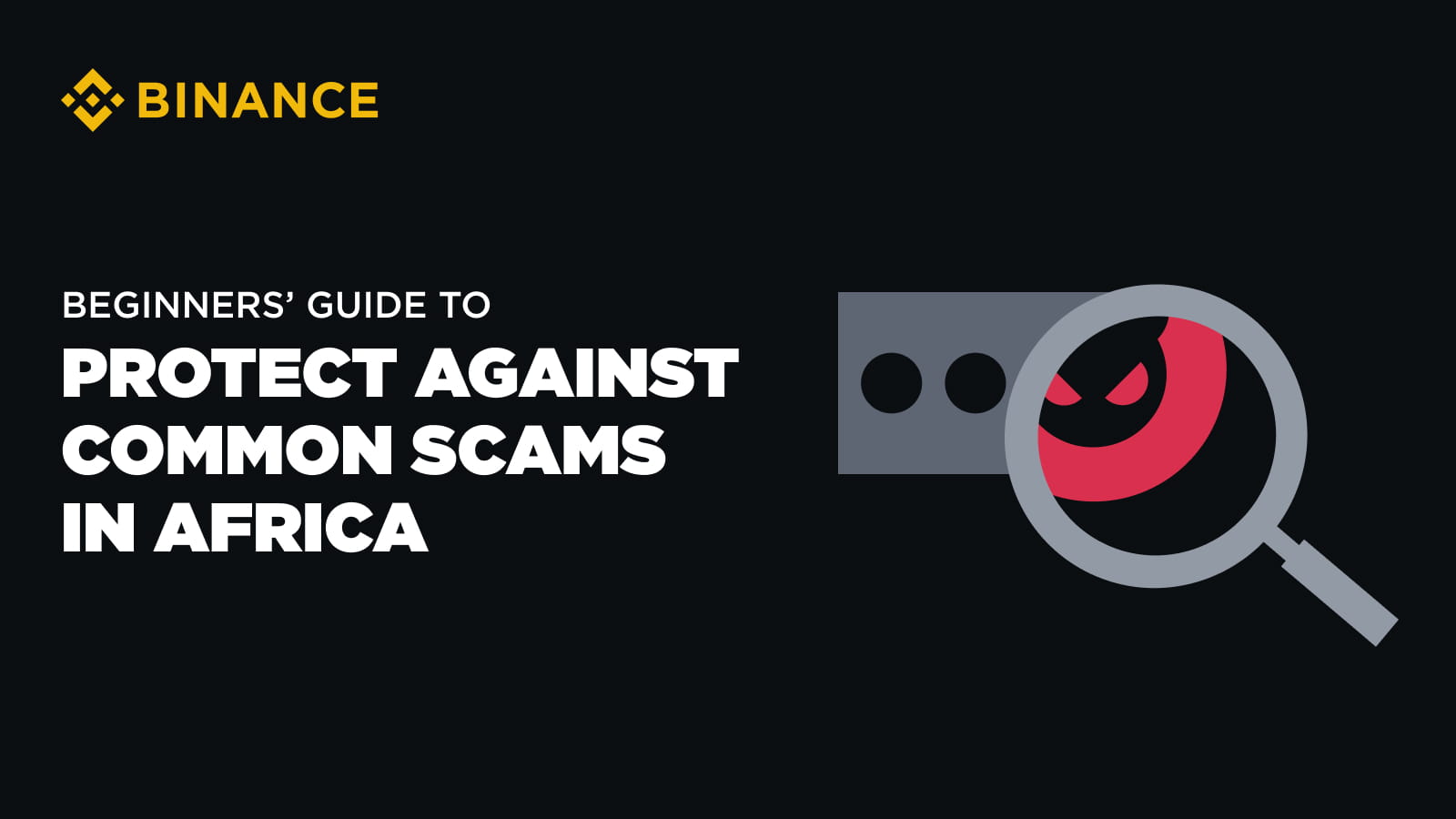Scammers are finding new ways to exploit unsuspecting users. Staying informed is the first step to protecting your assets.
Fake investment platforms, phishing scams, Ponzi schemes, and fraudulent giveaways target unsuspecting victims daily.
Spare five minutes on this read to learn how to protect yourself against scams.
Web3 growth and crypto adoption in Africa bring opportunities—and scammers. As adoption rises, recognizing scams and protecting your assets is critical.

This guide helps beginners navigate the crypto space safely by identifying red flags, avoiding common scams, and adopting best practices for secure transactions.
Crypto scams in Africa often target newcomers eager to invest but unfamiliar with how digital assets work. Many scams promise quick returns, exclusive investment opportunities, or high-yield staking programs. These schemes exploit trust and lack of knowledge, making it crucial to stay informed before making financial decisions.
While scam tactics evolve, they often follow the same patterns. Recognizing these warning signs can help prevent costly mistakes.
Some platforms claim to offer high-yield crypto investments or guaranteed returns. They lure users with flashy websites and fake success stories, only to vanish once deposits are made.
Promises of fixed or high returns
No clear information about the team behind the project.
Pressure to deposit quickly before “opportunity” closes
Before investing in any crypto platform, it’s crucial to always do your research to avoid falling victim to scams. Scammers lure victims with promises of guaranteed high returns, but real investments always come with risk. To protect your assets, verify licenses, check independent reviews, and avoid deals that sound too good to be true.
Binance enhances user security by offering verified investment options through Binance Earn and protecting users with the Secure Asset Fund for Users (SAFU), an emergency insurance fund for extreme cases.
Scammers send fake emails, texts, or social media messages pretending to be from reputable exchanges. These messages often contain malicious links designed to steal login credentials.
Emails or messages urging you to click a link and enter your password
Websites with slight misspellings of official domain names
Offers that require logging into an unfamiliar platform
Phishing scams often pose as official messages from trusted platforms, tricking users into revealing sensitive information. To stay safe, never click on links from unknown sources, always verify email addresses and website URLs, and enable two-factor authentication (2FA) on all crypto accounts for extra protection.
Binance strengthens security with its identity verification (KYC) process, ensuring only legitimate users can access accounts. Additionally, users can enable anti-phishing codes in their account settings to confirm the authenticity of official communications and block fraudulent attempts.
Ponzi schemes rely on recruiting new investors to pay returns to earlier ones. Once recruitment slows down, the scheme collapses, leaving most participants with losses.
Referral-based earnings with no clear product or service
Returns paid from new users’ deposits rather than actual profits
Leaders encouraging secrecy or discouraging questions
If an offer seems too good to be true, it probably is. Binance helps users stay informed by flagging suspicious projects and offering educational resources on identifying Ponzi schemes, creating a safer investment environment.
Awareness and due diligence are key to avoiding financial scams.
Scammers pose as well-known figures or exchanges, claiming to offer free tokens in exchange for personal details or small deposits. Once users send funds, they disappear.
Messages asking you to send crypto to “unlock” free rewards
Social media accounts that mimic official Binance pages
Too-good-to-be-true giveaways with unrealistic rewards
Binance regularly issues scam alerts and provides a Verified Badge to help the community distinguish real Binance channels from impersonators, ensuring a more secure trading experience.
Protecting yourself from scams requires both awareness and the right security habits. Here’s how you can stay safe:
Use Reputable Platforms: As a general rule, you are safer on well-known and trusted exchanges and marketplaces. Reading this on the Binance blog, you already seem to be doing well on this score!
Enable 2FA: Use two-factor authentication for extra account protection
Secure Your Private Keys: Protect your private keys, seed phrases, and passwords & never share them with anyone.
Verify Before Trusting: Always check official websites and social media handles before engaging with any project.
The rise of crypto adoption in Africa presents exciting opportunities, but scams remain a real threat—especially for beginners. Staying updated on security practices helps you trade your digital assets with confidence.
Knowledge is power. Stay vigilant, protect your assets, and always verify before you invest in any crypto asset.